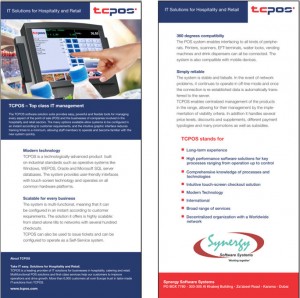Speaking on a debate panel on the first day of Cityscape Global, Faris Mansour, director of Mubadala Pramerica Real Estate Investors, said emerging markets, moved in short, sharp cycles, reflecting the movement of capital, as proven over the years around the world.
“We should expect that to happen here as well, …“And that’s not to say it will fall necessarily as it did before. But it will fall, it will correct and this is something we should all expect to happen and I expect it to happen in the next 18 to 24 months… as capital becomes more expensive globally.”
Mansour said real estate was linked closely to the pricing of capital, which had been at its cheapest rates for about 10 years globally.“We expect that that will change at some point,” he said. “The massive use of capital at emerging markets will eventually raise the cost of capital over time. That cost of capital will have a direct effect on real estate.”
He said investment in the Dubai property market as a result of the Arab spring was also temporary. As seen previously, as soon as the issue of liquidity emerges, that capital would move on to other markets.
On a regional basis, the Middle East saw the strongest rise in prime rents over the last year. Dubai rents have gone up by as much as20% however in property crash prices dropped by up to 60 percentand ares till below 2008 levels. Yet according to Asteco, the commercial sector in Sharjah has been relatively stagnant since 2010, with office rental rates still 64 percent lower than in Q3 2008, with minimal improvements of one percent compared to last year.
Ajman rents are still 31 percent down on Q3 2008. It is a similar picture in Fujairah with rents increasing but still 30 percent lower than the 2008 peak. There is little movement in Um Al Quwain either, rates over the past year increased by just two percent, around 40 percent below their Q3 2008 rates.
So while there is definitely a lot of optimism in the market it is stil very imbalanced across different verticals and there is still lot of uncertainty impacting business confidence – the USA budget deadlock, USA troop withdrawals, uncertain polictical situation in Syria, Libya, Iran, Iraq, Egypt etc. Only today it was reported that Libyan Prime Minsirer Ali Zeidan was taken by force from a hotel in the capital Tripoli and taken to an undisclosed location.
Yet there many new project announcments – the new Dubai canal, GCC said to be planning $109bn of new roads projects, Qatart to rival Dubai with shopping mall expansion. new railways and metro projects. There has also been a huge transformation in Abu Dhabi in recent years, but also in less publicised areas like Fujeirah with massive expansion in its ports to provde alternative option for shipping oil. Much hinges on whether there will be a massive injection to the economy, after the concerned committee makes its decision in November to award Dubai to host the World Expo 2020.
Since the 2008 global financial crisis. Dubai has built on, and operated in accordance with a reputation it worked hard to earn for: excellent infrastructure, modern government services and proper regulations.
A comment that caught the headlines to further emphasise Dubai’s objective to be a leader in providing world-class government services was by His Highness Sheikh Mohammed bin Rashid Al Maktoum, Ruler of Dubai who announced that he will personally host a farewell party to anyone (domestic government departments heads) who fails to proceed with Dubai’s development.
In 2013, the Morgan Stanley Capital International (“MSCI”) upgraded the UAE to “Emerging Market” status from “Frontier Market” and this is expected to attract a new wave of investors, specifically funds with a focus on emerging markets. As Mohammad Sultan Janahi a social affairs commentator from Dubai, put it “In a highly volatile and an increasingly political Middle East, the UAE is doing an excellent job maintaining stability”.
Despite all the moans and groans of the media, those who work here know that Dubai is not such a bad place to be when you look at the rest of the world. On that optimistic note as we approach Eid let me wish you all a happy holiday.
Please note that both Synergy Software Systems and Deyafa Systems offices will be closed from Monday to Wednesday next week.
We will be pleased to meet you at Gitex the following week. See us on:
– The Microsft stand in Hall 7 with out partner BI4Dynamics where we will also be happy to disucss Microsft Dynamics Ax, Dynamics CRM, and SharePoint. (Ask about our education solutions)
– Our own stand nearby, D7, where we will be featuring BSR Analytics for bank regulatory reporting, Prophix CPM, Keyed-in for Project based companies, and our RFID and Biometric solutions for Access control, Asset management and T@A.






